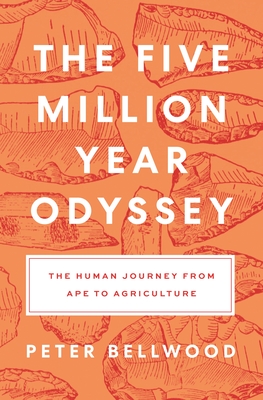
Bellwood, Peter
product information
description
ion, from our primate beginnings more than five million years ago to the agricultural era Over the course of five million years, our primate ancestors evolved from a modest population of sub-Saharan apes into the globally dominant species Homo sapiens. Along the way, humans became incredibly diverse in appearance, language, and culture. How did all of this happen? In The Five-Million-Year Odyssey, Peter Bellwood synthesizes research from archaeology, biology, anthropology, and linguistics to immerse us in the saga of human evolution, from the earliest traces of our hominin forebears in Africa, through waves of human expansion across the continents, and to the rise of agriculture and explosive demographic growth around the world. Bellwood presents our modern diversity as a product of both evolution, which led to the emergence of the genus Homo approximately 2.5 million years ago, and migration, which carried humans into new environments. He introduces us to the ancient hominins--including the australopithecines, Homo erectus, the Neanderthals, and others--before turning to the appearance of Homo sapiens circa 300,000 years ago and subsequent human movement into Eurasia, Australia, and the Americas. Bellwood then explores the invention of agriculture, which enabled farmers to disperse to new territories over the last 10,000 years, facilitating the spread of language families and cultural practices. The outcome is now apparent in our vast array of contemporary ethnicities, linguistic systems, and customs. The fascinating origin story of our varied human existence, The Five-Million-Year Odyssey underscores the importance of recognizing our shared genetic heritage to appreciate what makes us so diverse.
member goods
No member items were found under this heading.
Return Policy
All sales are final
Shipping
No special shipping considerations available.
Shipping fees determined at checkout.







